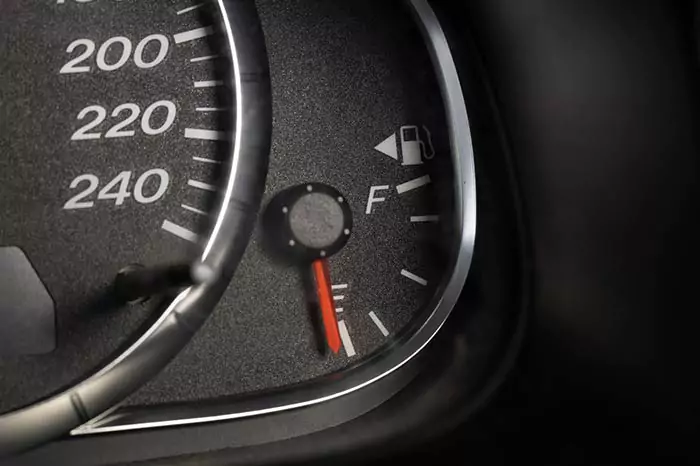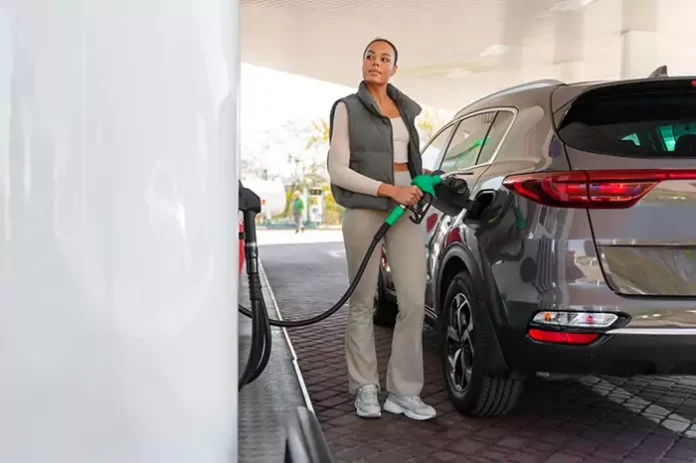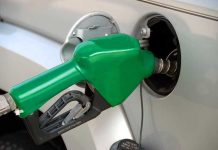With the global shift where environmental sustainability and efficiency take center stage, finding cars with good gas mileage has become a quest for many drivers. Thus, “What is considered good gas mileage (mpg)?” has become an increasingly relevant question, particularly for those who are all out for financial and environmental sustainability.
Good gas mileage is all about using less gas to go a longer distance. It’s like getting more bang for your buck with every mile. This is particularly the case with most modern mom cars, which embody the balance between economic efficiency, safety, and environmental responsibility.
Every year, the Environmental Protection Agency (EPA) evaluates the latest vehicles to assess their fuel efficiency. This is usually challenging given that miles per gallon (MPG) can vary depending on factors like one’s driving habits. Nevertheless, you may rely on the EPA’s official estimates for a reasonably accurate gauge of a vehicle’s fuel efficiency before making a purchase.
Read on to discover more about cars with best gas mileage to help you make informed preferences while staying on budget.
What is the Good Gas Mileage (MPG) for SUVs?

Every buyer in today’s SUV market is looking for a blend of convenience, spaciousness, and fuel efficiency. What is considered good gas mileage for SUVs is the MPG that helps you save on gas while offering top performance. It is no wonder that buyers are going for names such as Chrysler Pacifica Hybrid, Toyota Highlander Hybrid, and Subaru Crosstrek, among other SUVs with impressive city and highway MPG.
All of these stand out as large SUVs with best gas mileage for those who are always looking to save single penny on gas. Following is a short list of SUVs that deliver good gas mileage
- Subaru Crosstrek – Leads with an outstanding city/highway MPG of 34 / 27 and accommodates up to 5 passengers.
- 2024 Chrysler Pacifica Hybrid– Achieves an impressive fuel efficiency of 19/28/22 MPG with front-wheel drive, 17/25/20 MPG with all-wheel drive, and a combined 30 MPG with the hybrid pairing of an electric motor and a V6 engine. It is one of the best family SUVs providing seating for 7 people.
- 2024 Toyota Highlander Hybrid – This 7-seater SUV offers an impressive 36/35 MPG for city/highway.
- Chevrolet Suburban: This vehicle provides 23 combined MPG (21 MPG in the city road and 27 MPG on the highway). The 2024 Suburban is one of the best SUVs for moms that can comfortably seat up to 9 occupants.
- Chevrolet Tahoe – Comes in strong with an average fuel economy of 24 MPG and space for 7 to 9 individuals.
Most fuel efficient cars also come with top-tier safety and driver assistance features. Therefore, if you’re in search of the most reliable SUVs that helps you save on gas costs, you need to consider the latest models of SUVs with good mpg, as these features go hand in hand.
What is the Good MPG for Trucks/Minivans
Trucks vary widely in fuel efficiency depending on their size, purpose, and whether they’re light-duty or heavy-duty. Light-duty trucks with hybrid powertrains can achieve MPG figures that rival MPG for SUV and minivans, with the most efficient models reaching over 20 MPG in combined driving. EPA lists some trucks with impressive combined MPG, including:
- Ford Maverick HEV FWD – 37
- Chevrolet Silverado 2WD – 26
- Toyota Highlander Hybrid AWD- 36
- Toyota Sienna Hybrid 2WD – 36
- Kia Niro FE – 53
When it comes to Minivans, they are typically designed with family transportation in mind. They are also one of the best vehicles for short-heighted guys, packing features like the power lift-gate, tilt and telescopic steering wheel, good visibility, and power-adjustable seats. Some newer minivan models achieving good MPG in combined driving conditions include:
- 2024 Toyota Sienna – Achieves 35 MPG in the city and 36 MPG on the highway.
- 2024 Chrysler Pacifica – Offers 19 MPG in the city and 28 MPG on the highway.
- 2024 Kia Carnival – Delivers 19 MPG in the city and 26 MPG on the highway.
- 2024 Honda Odyssey – Provides 19 MPG in the city and 28 MPG on the highway.
What Affects the Gas Mileage of a Vehicle? 4 Causes of Bad MPG
Surprisingly, most car owners look for a single magic solution to improve their vehicle’s gas mileage. However, when it comes to squeezing every last mile out of a gallon of gasoline (GGE), several factors can possibly influence how your car uses fuel.
1. The Kind of Fuel Used
Different vehicles are designed to operate optimally on specific types of fuel. For instance, using diesel in an engine designed for petrol drastically reduces fuel efficiency and damages your vehicle. Similarly, opting for fuel variants with additives meant to clean the engine can slightly improve performance and fuel economy.
2. Type of Driving Condition
It is all about how to drive a car to get better gas mileage. City driving with its stop-and-go traffic tends to consume more fuel compared to cruising at a steady speed on the highway.
However, this doesn’t in any way mean you should take the long way around just to stay on the highway. Instead, it’s about adopting smoother driving habits, such as gentle acceleration and utilizing cruise control when appropriate, to improve your car’s gas mileage in any driving condition.
3. Fuel Octane
A higher octane rating leads to less combustion, which results in the more efficient operation of your vehicle. However, while it might seem like a higher octane fuel is the key to unlocking good gas mileage for your car, that’s not always the case.
Higher octane fuels are primarily beneficial for high-performance engines that require a higher knock resistance. For the average car, you need to stick to the manufacturer’s recommended octane rating. This is because pumping premium gas into an engine that doesn’t require it is like buying designer clothes for a newborn, more for your peace of mind than any practical benefit.
4. The Type of Vehicle
Your car’s engine size will greatly impact fuel economy. Larger engines typically consume more fuel because they produce more power, which is necessary for larger vehicles or those carrying heavy loads but can be overkill for everyday use. That’s where car upgrades come into the picture.
Upgrading certain aspects, such as its aerodynamics, can improve the MPG of a used car. Additionally, engine tuning for efficiency can make a noticeable difference in both aesthetics and how far your vehicle can stretch a gallon of fuel. Incorporating some must-have car accessories—like aerodynamic roof racks or fuel-efficient tires—can also enhance performance while keeping your ride practical and stylish.
How to Calculate the Gas Mileage (MPG) of a Vehicle?
Now that you are aware of what is a good mpg, how is the MPG of a vehicle calculated?
Calculating the MPG of your vehicle is simpler than it might seem, and it’s a great way to get a handle on how fuel-efficient your car really is. Here’s what you can do:
- Fill your car’s tank all the way to the top to set a starting point for your calculation.
- Note down the current mileage on your vehicle’s odometer. If your vehicle features a trip odometer, reset it to zero. This is your baseline from which you’ll calculate how far you’ve traveled on this tank of gas.
- Use your car as you normally would, just as you would in your usual routine. You may drive through different types of roads so your calculation will be based on a mix of driving conditions.
- Once your tank is close to empty, fill it up again to the top and record your mileage again
- Now, take the total number of miles you’ve driven (from the second mileage reading minus the first mileage reading) and divide that by the number of gallons you just put in your tank to refill it.
For instance, if you drove 200 miles and then refilled your tank with 10 gallons of gas, your calculation would be:
200 /10 = 20
This means your vehicle’s gas mileage was 20 miles per gallon (MPG).





